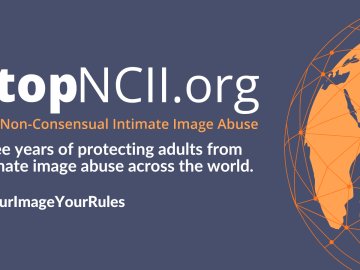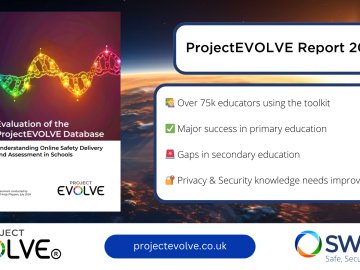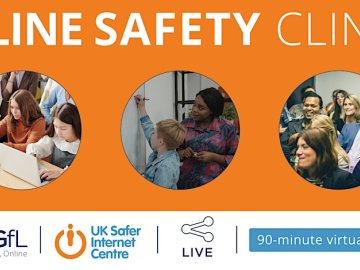The subject of online safety is huge, and continues to gather momentum. Where once we talked about secure connections and worried about whether to filter YouTube, the problems have now moved on; internet addictions, the impact on mental health and wellbeing, fake news, data privacy and more. Social Media, online bullying, gaming, grooming, and sexting are all just some of the issues facing young people. And we as educators need to help them learn how to navigate this world.
We need to move beyond 'online safety' to better understand how we develop resilience in young people so they can deal with what they see and do online, rather than hoping they avoid it completely
Andy Phippen - University of Plymouth
A New Online World
Chris Cloke, head of safeguarding in communities, also believes social media is a contributing factor as to why more girls are being admitted (for self-harm) than boys.
Online safety, is no longer just about keeping young people safe online, but needs to encompass a holistic approach to help young people feel able to cope with the digital world they are growing up in.
With 22%* of 4 year olds owning their own smart device, education needs to start at home as well as in the classroom. It is not the sole responsibility of parents, teachers or even the technology providers to keep our children safe, but all of us together need to talk, listen, inform and empower them to become responsible digital citizens.
Online safety has moved along way from talking about parental controls at home, or screen time limits but also needs to encompass attitudes. Cyber bullying, social media, fake news, we need to work with young people to educate them to how to become informed, sensitive and empathetic users of the digital world.
*Ofcom 2017 Children and Parents: Media Use and Attitudes Report
We are the UK Safer Internet Centre
SWGfL is one of three partners in the UK Safer Internet Centre, along with Childnet and the Internet Watch Foundation. The Centre has a shared mission to make the internet a better place for children and young people and we are dedicated to equipping young people and those who work with them with the resilience they need as they grow up.
We provide schools and other organisations working with young people with resources and support to review and improve their own online safety provision. Our work raises awareness among professionals, parents and carers about risk and harm around digital technologies while focussing on the importance of understanding online behaviour and developing digital literacy skills.
Keeping up to date
Why not take a look at our latest free resource, the Online Safety Schools calendar. It aims to provides schools and those who look after online safeguarding and well-being of students and staff with a helpful snapshot of key e-safety dates month-by-month, as well as points of advice and support, including tools and resources available for your school to use.
Key dates to look out for include Safer Internet Day 2019, Anti-Bullying Week as well as dates for our programme of free briefings around the country, which will bring you the latest online safety updates.
Other Great Resources
We also develop a huge range of other resources and tool online safety self-review tool 360 degree safe, now used by over 11,000 schools in the UK as well as our more recent tool 360 data which will help your school manage your data. We have also included further GDPR guidance for schools and colleges as well as our toolkit of online safety resources BOOST.
We will be talking more about these resources in our monthly newsletter, if you know someone who has responsibility for online safeguarding, make sure they sign up.






